The Kivu’s are slipping into a quagmire of confusion. An even bigger war is now looming at the horizon
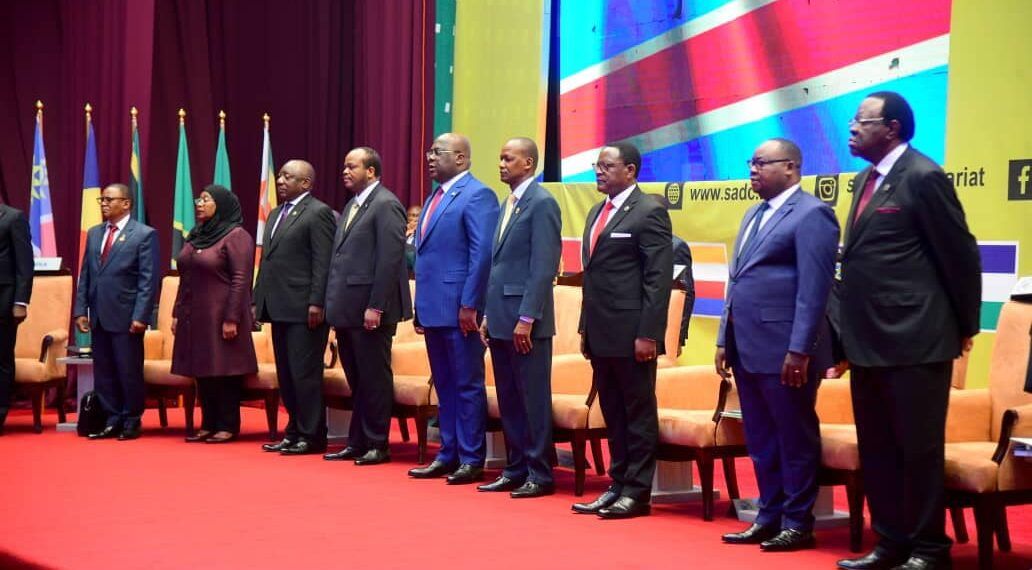
We were not the only ones who were surprised to hear that the SADC is going to send an intervention force to arrange the problems in the Congolese Kivu’s. Very few people believed that President Felix Tshisekedi would be able to pull this off: after trying to lure the UN and the EAC in in role of a combative force against the M23 the word is out now that the SADC is willing to fight Makenga’s men. For many outsiders this situation might look like the one of 2013 when a combined force of Tanzanian, South-African and UN troops chased the M23 into Uganda. The M23 did not really fight back while withdrawing. But this time the cards on the poker table are different: the M23 will most certainly not withdraw, if the SADC forces will indeed receive a more offensive mandate they’ll be considered as hostile forces and all those who will be helping them will be labeled in the same way. In all those talks about peace in the region the root cause of the problem was seldomly discussed: the fact that the M23 was given certain guarantees in 2013 that were never respected. The rebels showed their goodwill by vacating some of the areas they occupied and allowing the EAC-troops in to function as a tampon force. All this seems to have been in vain now. It is not clear now which promises the SADC will make before they deploy their troops in the region but the perception, they created by signing this new deal with president Tshisekedi, is already hovering over the region as thick and dark clouds that can erupt in a heavy thunder storm at any moment. Nobody has a glass boll in which he can look or see what the future has in stock but we’ll try to sum up a couple of possible scenarios.

When the news came out that the SADC would send an offensive force to the Kivu’s we immediately contacted some of our sources within the M23, the Rwandan and the Ugandan governments and within the EAC. A Rwandan top official summarized it like this: “This new monkey business deal shows clearly that Tshisekedi is not interested in peace and that he is utterly stupid. I will not hold my breath if the SADC-forces attack the M23.” Our M23 contacts even went one step further: “We will not abandon our positions for that force and we will fight them if they attack us. They should be willing to take a lot of casualties in this process and we could turn their stay in the Kivu’s into hell. The big difference with 2013 is that this time nobody will be able to convince us to kneel down: we were lied to in the past several times and we won’t accept their promises. We also learned a lot of the mistakes we made and we are willing to die for our cause.” A top EAC officer in Goma put it like this: “We have learned now that the government in Kinshasa is not interested in peace. As soon as it became clear to them that we didn’t want to fight the M23 they started boycotting and discrediting us. This new deal bankrupts all the previous efforts that were done in Luanda and in Nairobi. Our mandate is not compatible with that of a more offensive force. So, this makes it nearly impossible to collaborate with them. A much bigger conflict is now looming at the horizon.” Similar reactions can be collected in Uganda.
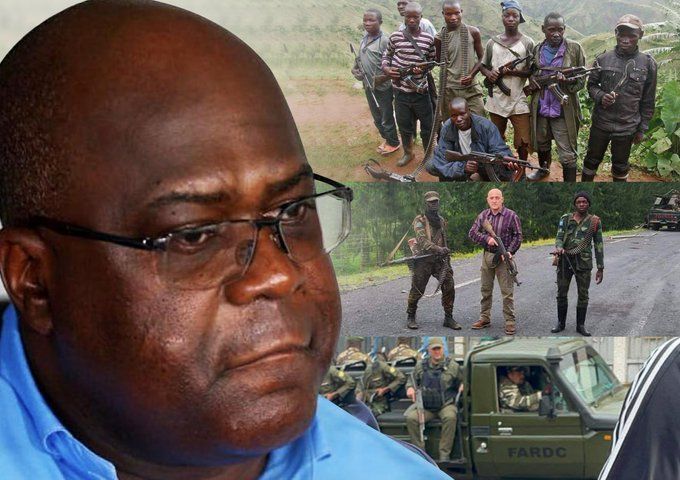
While the SADC is preparing its troops its leaders will probably start touring the region to flatten the political obstacles. But they will be received with a lot of skepticism and thorn by most of the politicians they’ll meet. Tshisekedi is trying to kick off this new collaboration as soon as possible; yesterday he already told the media that the EAC forces would have to leave in one month and he added to that that, except for the Burundian army, was collaborating too closely with the M23. He’ll want visible results in the war against the M23 so that he can use this to boost his chances to be re-elected at the end of the year. And by doing this he’ll want to by-pass his highly critical collaboration with the FDLR, etc. His bluff poker might be working for the moment but he’s forgetting that his adversaries might still hold a lot other cards in their sleeves. And if he succeeds to draw the UN into this plan (just like in 2013) the moral bankruptcy of MONUSCO in this region would become a clear fact.
South-Afrika and Angola bombarded Namibia into the leadership-role of this new force. The South-Africans were the leading influencers to convince the other SADC countries to sign this deal and the Angolans were playing and ambiguous game during the past couple of months: on one side they were supporting the EAC efforts to send a tampon military force to the Kivu’s and on the other hand they clearly had another move in mind. They were already talking about the cantonment of the M23 in the Maniema province without that the latter had been asked for their opinion about this. Rwandan officials had fixed contacts for them with the M23 for talks, etc. They will have a very hard time now to talk openly to the M23 again. The South-African government was very likely looking for a new opportunity to polish up its shield as one of the leading nations in Africa: the performance of the SADF in Mozambique is very weak and the RDF had to step inn several times to save their reputation. Rwanda and South-Africa have never been the best friends: South-Africa became a safe haven for Rwandan opposition members and the fact that Rwanda started to profile itself as a new example for other African countries was difficult to digest for many South-African leaders. Via this new SADC force in the Kivu’s Pretoria might try to counter that.
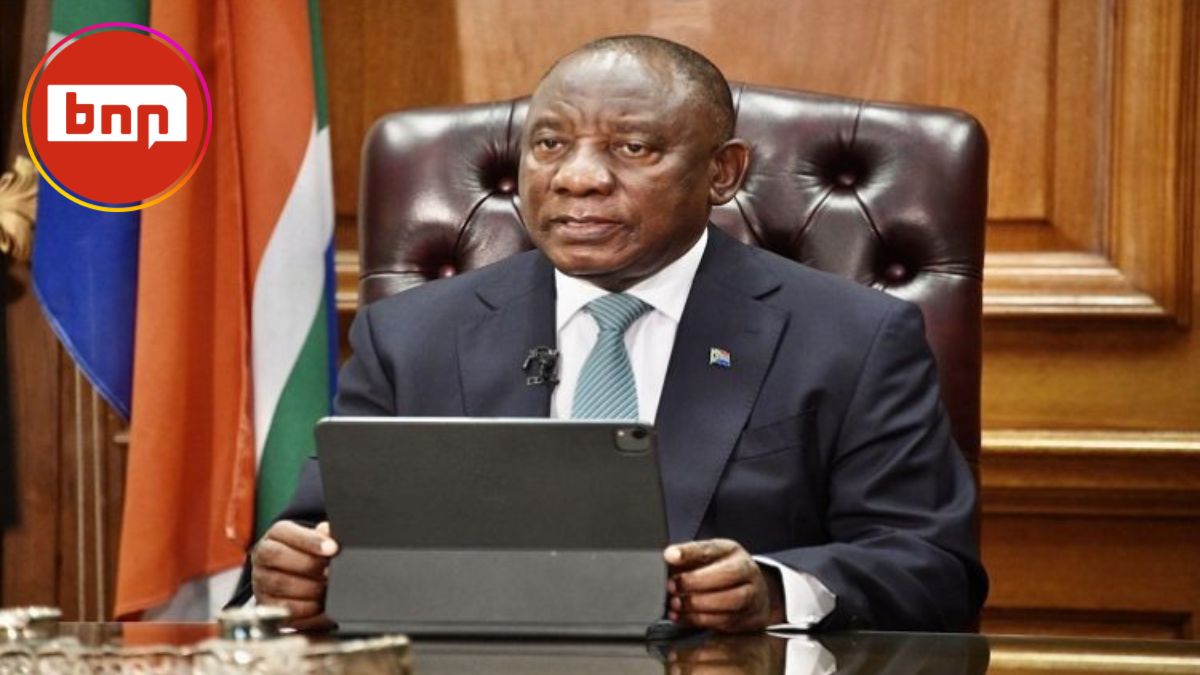
The decision to become part of this new SADC force is considered to be the second betrayal of the Angolan government in Tutsi circles: the first betrayal took place during the big Congo war when President Kagame received the promise of this colleague Dos Santos not to disturb the RDF-RCD combined force that landed in Kitona and moved on to re-take Kinshasa. The Angolans allowed the Rwandans to move to the Ndjily airport, just outside Kinshasa. But they turned their backs on their promises and started to attack them with Mig’s and helicopter guns ships instead. The Tutsi community in the Great Lakes Region will, without any doubt, perceive the Angolan actions against the M23 as a new betrayal, one that will not be pardoned (this time) so easily.
Add to that the distrust between the Rwandan and the South-African governments and the fact that, very likely, the FDLR will once again be able to thrive in this chaos the red line of acceptance for the Rwandan authorities will be crossed. Several Congolese politicians already claimed openly that after the defeat of the M23 Rwanda would be next. This might seem harsh and exaggerated but Kigali knows that the FDLR would benefit big time from this scenario.
Tshisekedi also managed to play out the EAC and the SADC against each other; they’ll have to talk now to each other to pass on the helm in the Kivu’s. This will not be easy but their future interactions will be poisoned for years to come.
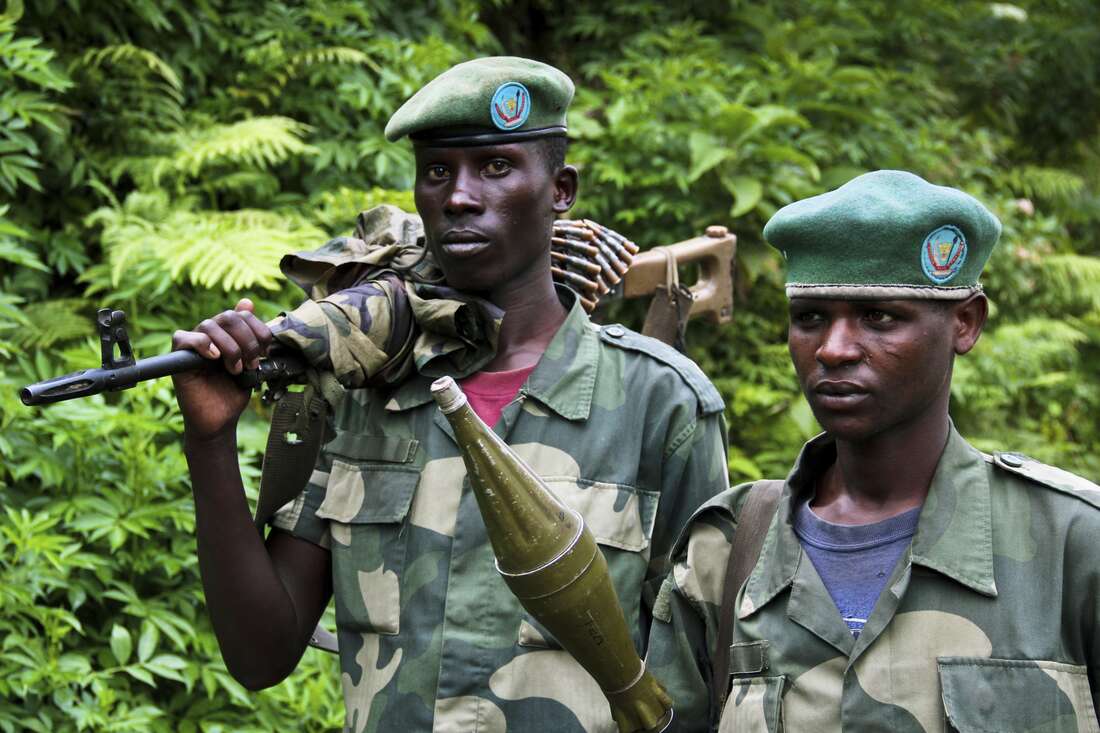
Another question that should be raised: who is going to pay for this new deployment? The EAC was asking money to the African Union and even to the European community. Kinshasa is spending zero francs for it and prioritizing the recruitment of mercenaries and the purchase of new weapons. The institutions that agree to pump money in the EAC efforts do so because they agreed on the terms and the conditions of this deal. But will they be happy to cash up as well for money a project that might lead to much more violence and an open war against the M23, without resolving the problems that other militia’s (Codeco, Nyatura, FDLR, etc…) are creating in this region? Tshisekedi wants the SADC on its rails on one month but this seems an incredible short period to address basic questions like these.
Angola and South-Afrika might have their own agendas but they are using Namibia as a neutral and rather innocent looking front window to hide this. The Namibian commander who will have to lead this force will have to listen and take care of their needs. He might carry the most stars on his shoulders but those will become less visible because of the strings Pretoria and Luanda attached to his uniform to orientate him.
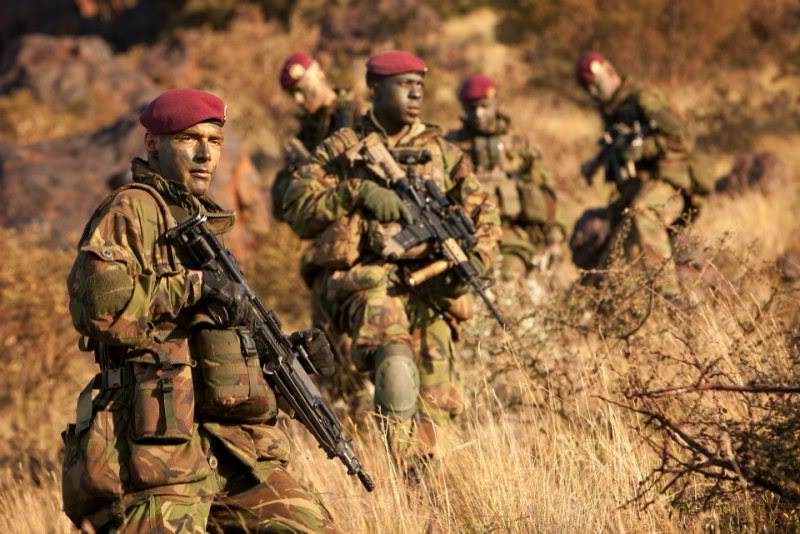
If the SADC will be able to deploy a whole division in the Kivu’s (as they say….) the M23 would be outgunned. But probably not out classed and out smarted. And unlike their opponents they will be willing to die for their cause. Even the most mediocre strategist would understand that it would be very easy for the M23 to cut the grass in front of the SADC-forces by cutting Goma off from the outside world, blocking the airport and turning this deployment into a logistical nightmare. The SADF and the Angolan forces would have to do this well knowing that the Rwandans, as well as the Ugandans would very likely not grant them safe passage via their countries. In that case they would have to use Kisangani as a hub. The airstrip in Bukavu is far too short to host big military transporters. This is an extreme scenario but also a possible one. The other scenario would be that the M23 changes its strategy into one of protracted and mobile warfare and engages in a guerrilla war. This would be very easy for them to do. This would force the SADC to rely heavily on proxy FARDC forces such as the FDLR, the Nyatura and the Mayi Mayi and fall in the same trap as Tshisekedi who already lost a lot of credit to use these groups as cannon fodder. The M23 would lose also soldiers in this kind of war but much less than in a position conflict. They already prepared themselves for this by organizing weapon- and ammunition caches all over their territory. And they would be able to inflict heavy losses on their adversaries. They would also be in good position to disturb the logistical routes of the SADC forces who will have to fight a war very far from their homes. To cut this short they would only be possible to do this if the UN backs their efforts. And if the UN is willing to do this it will tarnish its reputation in the region even much more. The SADC would also be forced to collaborate with mercenaries. The UN has shown itself adverse to this kind of practices.
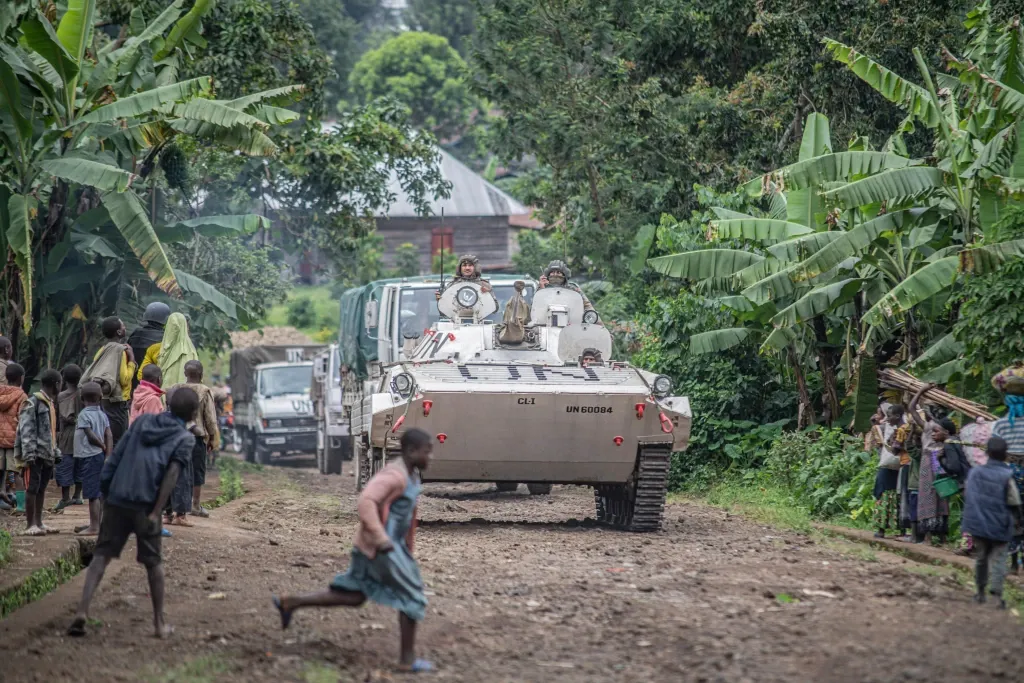
Rwanda is being accused of being the biggest problem in this conflict; the M23 soldiers are being called Rwandans. This is a fierce overstatement. But this time Kigali and Kampala will, very likely, not try to convince Sultani Makenga to abandon his positions; the whole Rwandan public opinion is pro M23 and for the Tutsi community a possible withdrawal of the M23 cannot be discussed. Many people in Kigali look at South-Africa as a country that is sheltering their enemies and they believe that a defeat of the M23 might be followed by new FDLR incursions from the DRC. Apart from the fact that a spill over of the fighting onto Rwandan soil might result in a direct and well-aimed reaction of the RDF Rwanda will most probably refrain to meddle in this new war against the M23. And they won’t have to do that given the fact that the M23 is strong enough to cause enough damage.
Our sources tell us that them UDPF might not be willing to vacate its newly acquired positions in the Kivu’s. We are not sure of this, though! Museveni’s actions can be difficult to understand, sometimes. But it is very unlikely that they will change their attitude towards the M23 conflict.
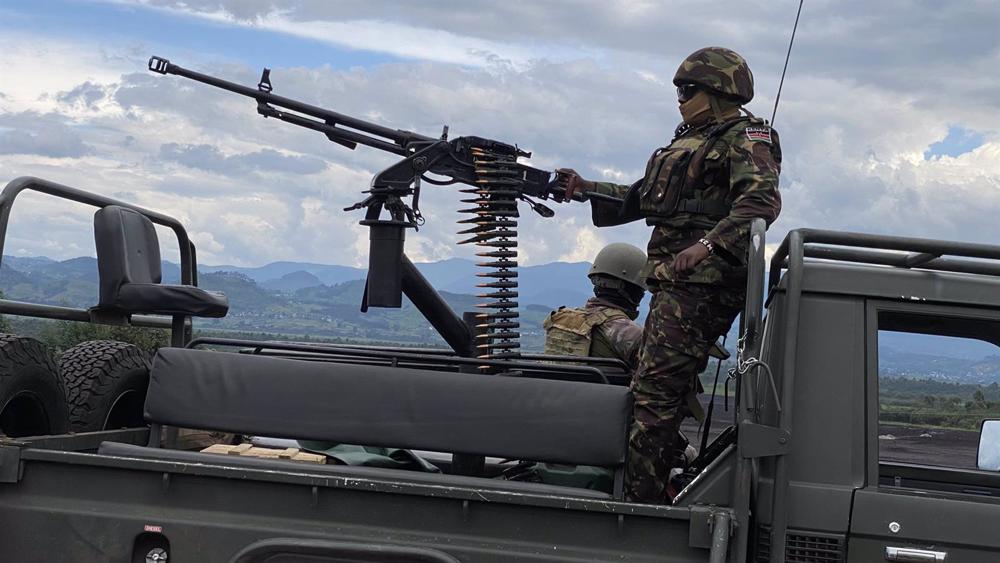
As it will be nearly impossible for the SADC to convince the outside world of their good intentions and as their adventure might become a logistical and military disaster the Kivu’s are plunged into an even bigger confusion. Even when they will be able to neutralize the M23 by accepting Tshisekedi’s offer it is very unlikely that their actions will solve the root problems of this conflict on the long run.
We write this analysis so that You can better understand the background of all this. Some of our assessments might be wrong and we don’t have access to the other side of the factual blade. However, we strongly believe that our opinion should be compared with contradicting ones so that a balance can be found on which a long-lasting plan can rest. The international community should look at what was decided in Namibia with a critical eye and pose its conditions before this deployment will take place. They should also look again at the root problems that caused this problem and they should understand that the Bagogwe community in the DRC will have no other choice than to fight back. The region has seen enough bloodshed. Wars block the economic development of this region. And defenseless people are paying the price for this madness.
Adeline Umutoni and Marc Hoogsteyns
